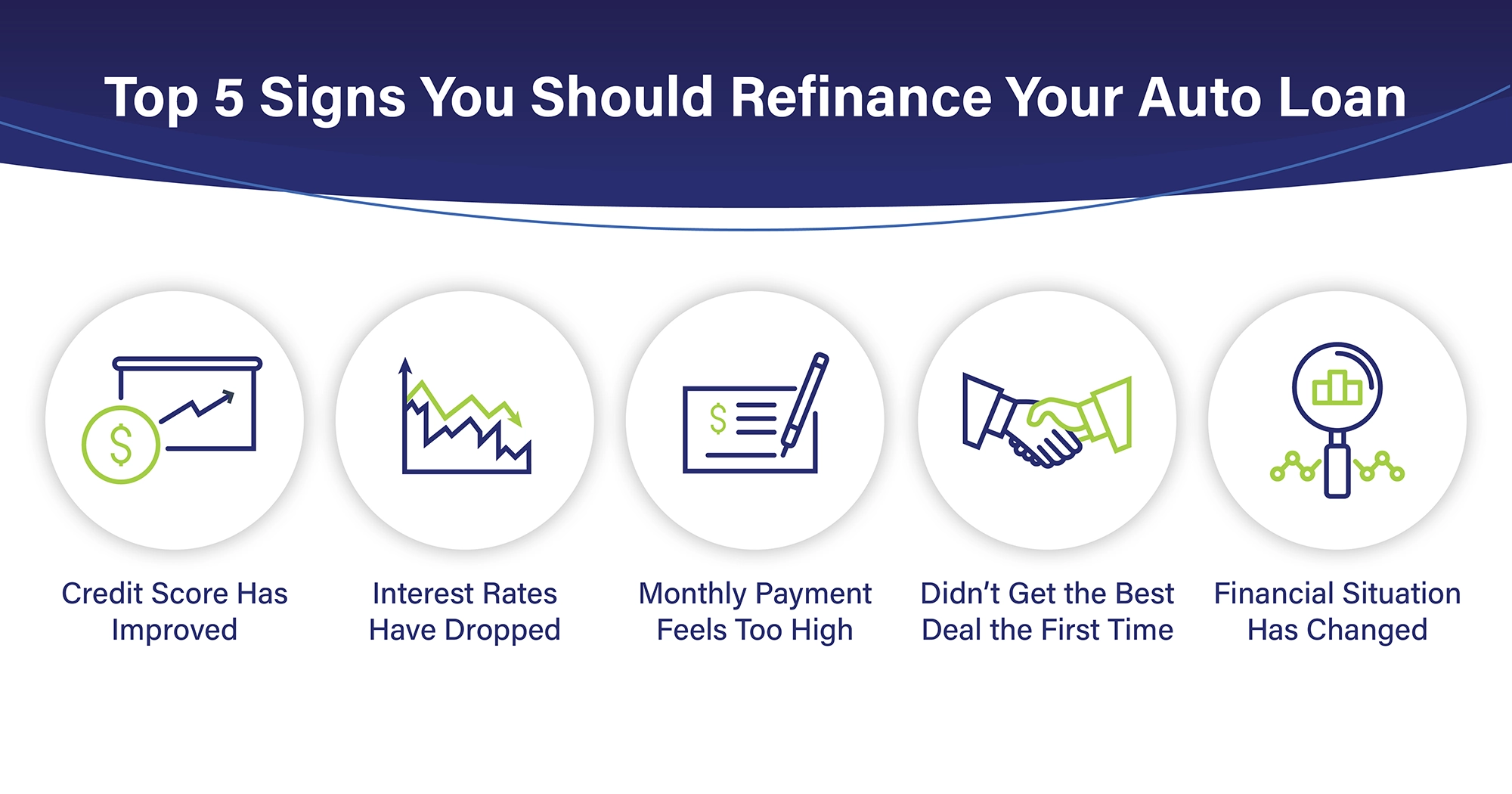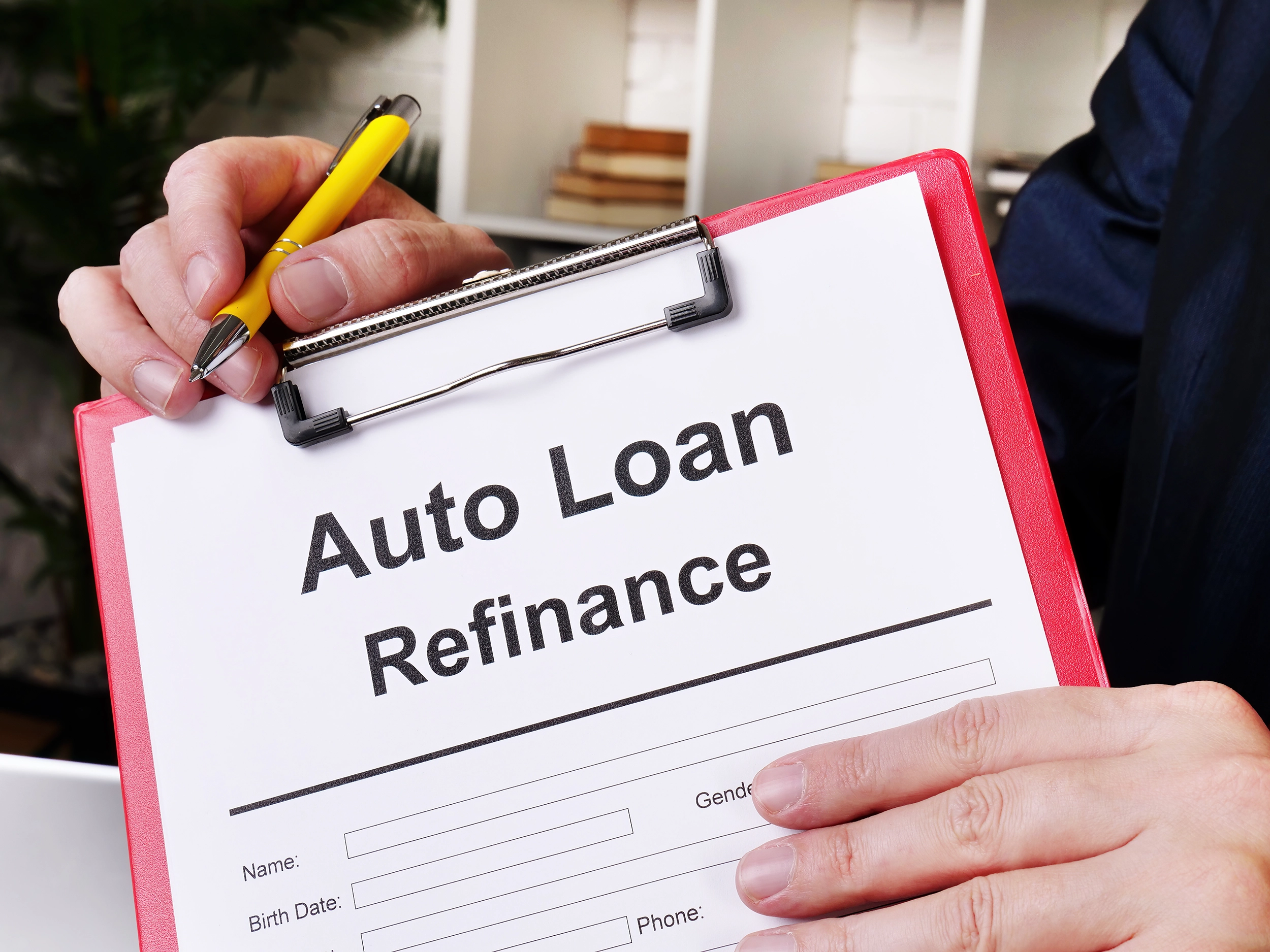We have one important message for you. If you’re not happy with your current auto loan, you don’t have to stick with it. No, that doesn’t mean you can forego the loan and stop making payments. Rather, there are other options that you can pursue, such as auto loan refinancing.
Refinancing your auto loan just means that you are replacing your current loan with a new one. And typically, this means a better interest rate or better terms. An auto loan refinance can help you lower your monthly payment, shorten the overall term of your loan, or even free up cash for other expenses. Yet, many car owners never consider refinancing, even when they know that better offers might be available.

In this article, the team at Rateworks will share five big indicators that suggest it might be time for a car refinance. Whether your credit score has improved or the market is looking more favorable, it’s worth exploring whether or not a new loan is best for you and your financial needs.
1. Your Credit Score Has Improved
Let’s talk credit scores for just a moment. Did you know that the average credit score in the U.S. is currently around 715? But just because that’s the average, that doesn’t mean that your credit score was at 715 or above when you first took out your car loan. In fact, if your credit score was below 670, you likely didn’t get the best interest rate.
So, if your credit score has experienced a bit of a jump, it might be worth exploring whether or not you qualify for a better interest rate. And just because interest rates have been on the rise in recent years, it doesn’t mean you might not be able to get a better deal.
2. Interest Rates Have Dropped
Okay, we know we just said that interest rates have been on the rise in recent years. But again, that doesn’t mean that the interest rates you could get now aren’t lower than the interest rate you currently have. It’s true. Even a small drop in your recent rate can make a big difference over time.
For example, lowering your rate by just 0.5% can save you hundreds of dollars across the life of your loan, especially if you still have several years or a large balance remaining. Those savings can add up pretty fast. And, it can reduce your total repayment amount, potentially freeing up room in your overall budget. That said, we suggest checking current auto refinance interest rates to compare to what you are paying now.
3. Your Monthly Payment Feels Too High
We’ve all found ourselves in tight financial situations. In fact, an estimated 67% of Americans are struggling financially, with many living paycheck to paycheck. Whether you fall into that category or you just feel like you’re paying too much for your car loan, checking into other options can be well worth it.
For instance, maybe you took out your car loan two years ago, and you’ve made good progress on paying it down. But now, you could use a bit of breathing room in your monthly budget. Depending on your car’s age, mileage, and equity, you might be able to extend the loan term by an additional year or more. While this might mean paying a bit more in total interest, the trade-off is a lower monthly payment that can make the day-to-day a bit less stressful.
Want to see how much you can save? Try out our auto refinance calculator.
4. You Didn’t Get the Best Deal the First Time
Whether you bought your car new or used, it doesn’t mean you got the best interest rate or loan terms the first time around. In fact, that’s why so many people refinance their auto loans as soon as 30 to 90 days after buying their car. The simple truth is that you might be able to save, and in a big way.
If your current rate or terms feel higher than what is being offered today, refinancing could help make things a bit better. Many borrowers simply accept the first financing option presented to them at the dealership, often without comparing other offers. And dealer-arranged loans can come with higher rates and add-on costs that inflate your payment, not to mention that many dealers receive incentives for getting customers to take certain loans over others.
By refinancing with a lender that specializes in auto loans, there’s a good chance that you can get a better rate that reflects your credit profile and improved financial standing.
5. Your Financial Situation Has Changed
A lot can happen in a year and over the lifetime of a loan. That said, you might be in a better financial situation than you were when you bought your car. Perhaps you have received a pay bump, or maybe you paid off some other debt. In either of these situations, your debt-to-income ratio will have improved, and that’s something that lenders like to see.
Refinancing can help tailor your loan to your current financial picture. So, be sure to take a look at what auto refinance lenders have to offer to see if a better opportunity is waiting for you.

Refinance Your Auto Loan with Rateworks
Refinancing is about so much more than lowering your interest rate. It provides you with an opportunity to find the right fit for your financial situation. From an improved credit score and lower interest rates to reduced monthly payments and overall terms, these are all clear signs you should refinance your auto loan.
And the good news? You don’t have to figure it out all alone. Rateworks makes the process simple. We help drivers compare options and secure new loans that can save money and make car ownership more affordable over the long run. This means a better experience for you on the open road.
Ready to get started? Get a free quote today.












